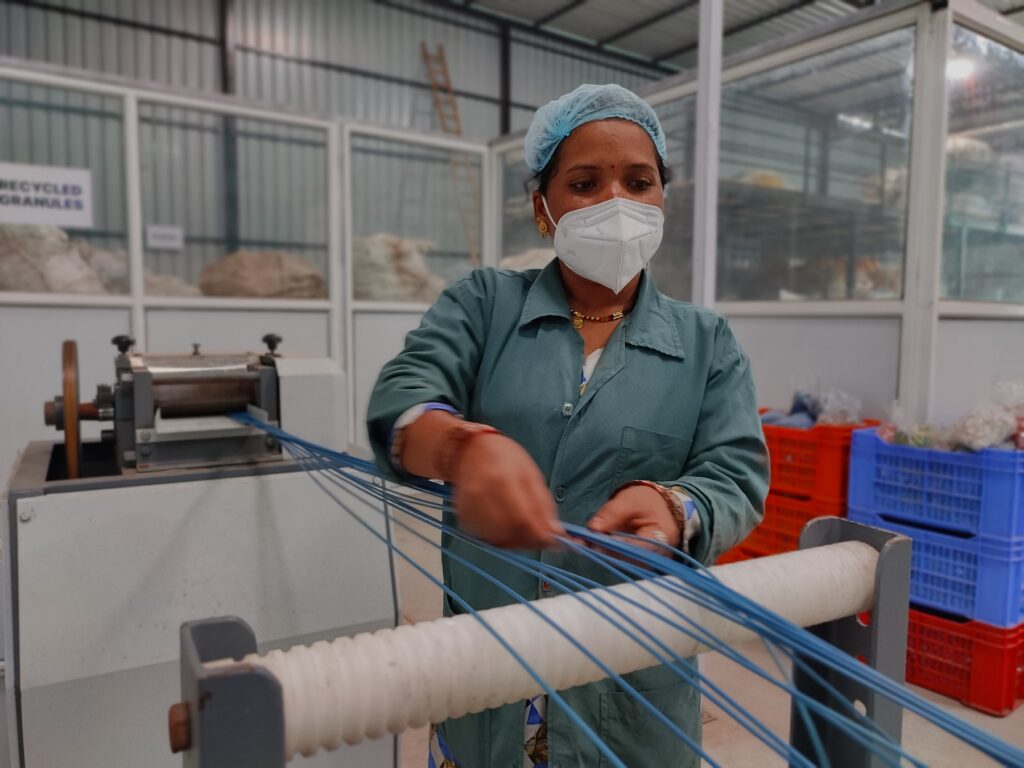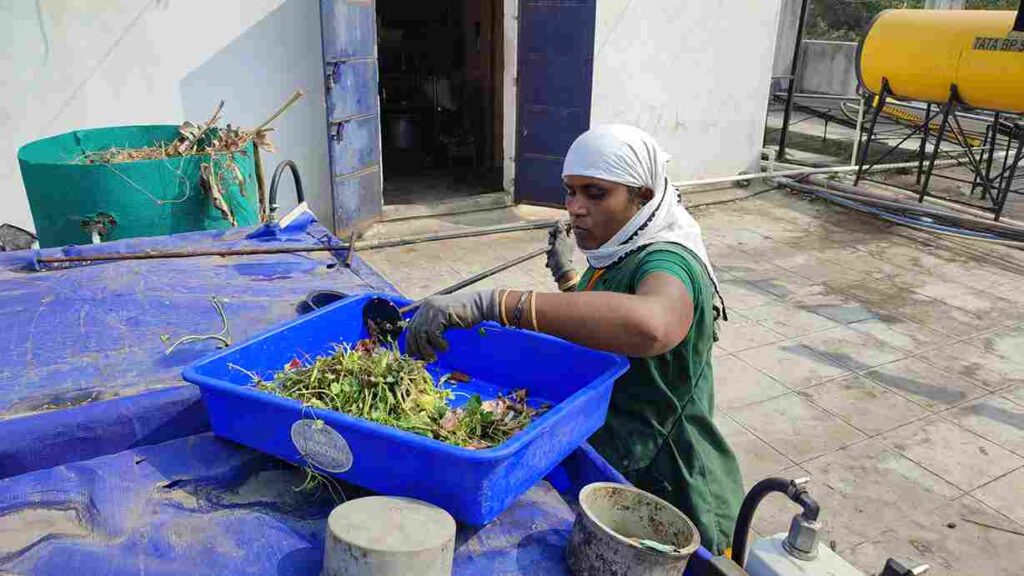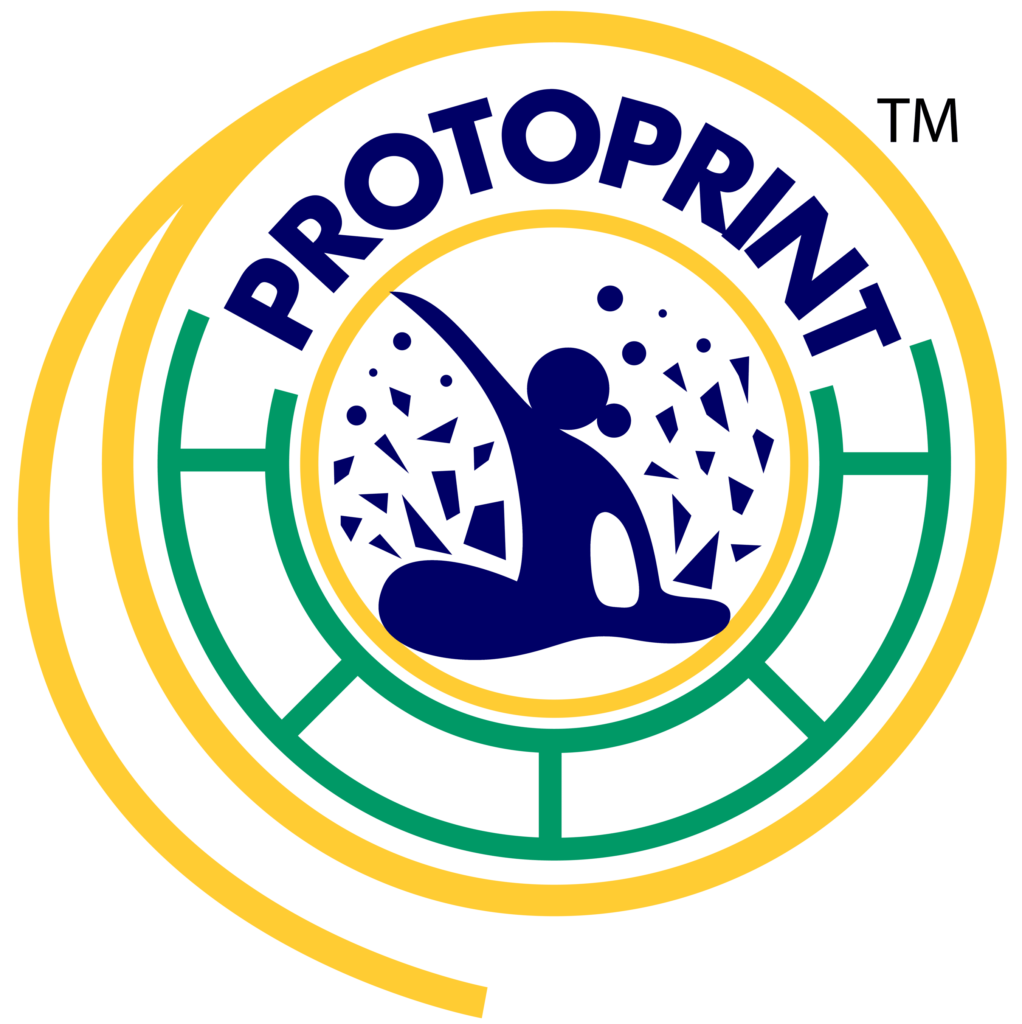About Protoprint
Specifically, the project seeks to set up an ecosystem that supports the development of self-managed waste-processing units that are operated by waste-pickers and use a combination of technology and standardized processes to convert plastic waste into recycled plastic products which can be sold to end users via negotiated agreements with industrial partners that ensure fair compensation for the workers.
Over a period of four years, more than 1,000 waste pickers in Pune will be incorporated within this decentralised, fair-trade plastic recycling ecosystem. The waste picker entrepreneurs will be supported to produce a diversified range of outputs – plastic flakes, plastic granules and high-value products like 3-D printer filament. The project will work in collaboration with European entities to ensure a standardized and rigorous certification of these products for customers in both the Indian and European markets.
Project Protoprint has multiple far-reaching benefits to the waste pickers and to the city as a whole. The initiative tackles the problem of plastic waste pollution through a local, decentralised and circular economy, creating a positive economic and environmental impact for Pune city. It also supports a particularly marginalised community of women waste pickers through upskilling, training, and financial empowerment to transform their position within the recycling landscape.


10
Years of Experience in Recycling
Project Objective

Project Objective
Circular Economy and Climate Change
The low margins and high barriers to formalisation keep the workers within this sector outside the rapidly changing formal waste management ecosystem. These workers often lack access to fair wages, social security benefits and fair terms of engagement. Fair-trade, inclusive and high-quality plastic recycling will be a critical strategy towards correcting these social inequities and reducing our dependency on fossil fuel-based plastics.
The European Green Deal provides an ambitious framework to fundamentally transform its economy in a manner that enables carbon neutrality by 2050. It aims to build a resource-efficient circular economy where economic growth is decoupled from resource extraction. The Swachh Bharat Mission in India has similarly brought a much-needed focus on waste management and plastic waste issues and created an environment to support positive changes in this regard. The Indian regulatory landscape has also evolved in recent years, with the introduction of the Extended Producer Responsibility framework. Project Protoprint was founded on these very same principles to provide a concrete and achievable roadmap to limit the social and environmental externalities of plastic waste. It is in alignment with the environmental and climate priorities of India and the EU.
The Way Forward

Improved wages, labour rights, formalised benefits and upward mobility for urban waste-pickers.

Social mobility through the empowerment of vulnerable communities like migrants and women that disproportionately contribute to the waste-picker population.

Improved plastic recycling rates resulting in less littering / land-fill disposal which in turn results in improved environmental, climate and human health outcomes.

Formalisation of the recycling sector allows for more transparency and innovation leading to greater efficiencies.

Partners

Kashtakari Panchayat (KP)
Kashtakari Panchayat (KP) was established in 2010, to support Pune’s waste pickers and their collectives. KP’s programs are designed to enable access to social protections, provide emergency support, strengthen waste picker livelihoods within and beyond waste management, provide technical support and capacity building, and increase the visibility of waste pickers as frontline environmental workers.
Know More

Social Seva Initiatives
Social Seva Initiatives is a non-profit based in Pune, providing technology solutions focused on social innovation and environmental sustainability. Social Seva's current projects focus on inclusive recycling solutions, air pollution mitigation, online education and rural healthcare accessibility..
Know More

SWaCH Pune Seva Sahakari Sanstha Maryadit
SWaCH Pune Seva Sahakari Sanstha Maryadit is India’s largest cooperative wholly owned by waste pickers and aims to build a sustainable waste management system for the city while protecting the livelihoods and dignity of waste pickers. Today, nearly 3,800 waste picker members of SWaCH provide daily front-end doorstep waste collection service to over 3.7 million citizens of Pune.
Know More

SWaCH Plus Seva Sahakari Sanstha Maryadit
SWaCH Plus Seva Sahakari Sanstha Maryadit is a wholly self-owned cooperative of informal waste-pickers formed to support and upgrade the livelihoods of informal waste-pickers. Starting with zero waste contracts for institutions, it has since diversified into processing organic waste, comprehensive waste management solutions, processing of plastic waste, and thrift stores.
Reach Us

Adelphi
adelphi is Europe’s leading independent think-and-do tank for climate, environment and development with its mission: To enable transformative change and create a sustainable future for generations to come. adelphi works in six interconnected fields of action namely, energy, economy, diplomacy, climate, finance and resources.
Know More

